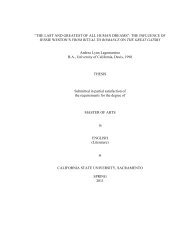COMMUNITY ACTIVISM IN OAK PARK: COMPETING AGENDAS ...
COMMUNITY ACTIVISM IN OAK PARK: COMPETING AGENDAS ...
COMMUNITY ACTIVISM IN OAK PARK: COMPETING AGENDAS ...
Create successful ePaper yourself
Turn your PDF publications into a flip-book with our unique Google optimized e-Paper software.
city powers, such as condemnation, financial incentives, and municipal borrowing,<br />
mobilized to promote urban redevelopment,” claims Frug (1996:1081). Urban<br />
redevelopment initiatives in cities have been lauded as beneficial economic development<br />
in inner-cities by the general public and media.<br />
Many neighborhood residents encourage urban redevelopment initiatives, hoping<br />
that dilapidated buildings will be rehabilitated and new businesses will open up, drawing<br />
a new influx of consumers and capital into the city. Deutsche (1986:71) explains that<br />
“the use of the city neighborhood as a commodity to be exploited for profit represents<br />
only one of its purposes in the capitalist economy—traditionally it has also provided the<br />
conditions necessary for reproducing necessary labor power.” But Amin and Graham<br />
(1997:421) explains that just concentrating on the cultural experience of new consumer<br />
spaces can often ignore the larger social contexts in which they are produced and the<br />
socio-spatial segregation, social control, and surveillance with which they are often<br />
associated. More specifically, city control over land use in cities lays the foundation for<br />
new consumer spaces to develop in neighborhoods.<br />
“For the moment, the modern city remains structured by the historical forces that<br />
have created it, the most recent of which has been twentieth century modern planning and<br />
urban development” (Cooke 1990:339). Increased surveillance has accompanied modern<br />
planning and urban development. Forms of state surveillance, in the modern city, and<br />
control of populations, as well as of capitalist organization and work discipline have<br />
depended on the homogenizing, rationalizing, and partitioning of space (Alonso<br />
1994:382). The modern city is thus a center point for commercial industry and is a<br />
26



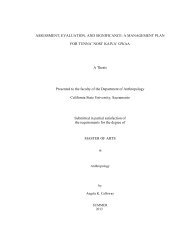
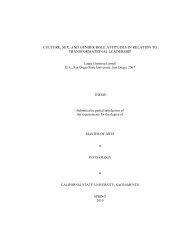
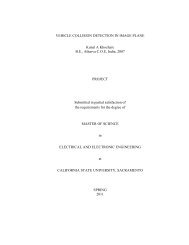
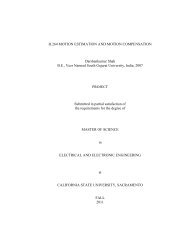
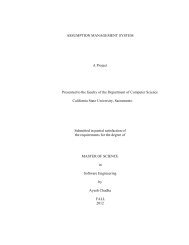
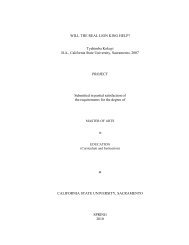
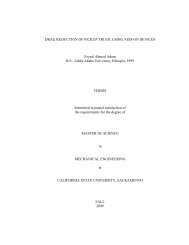
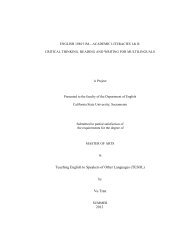
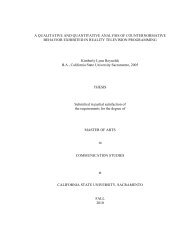
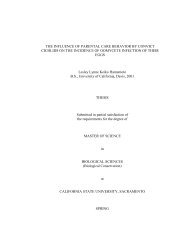
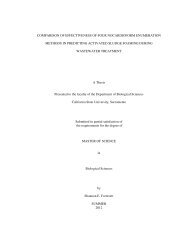
![Completed Thesis to Grad Studies[Final3].pdf](https://img.yumpu.com/17538645/1/190x245/completed-thesis-to-grad-studiesfinal3pdf.jpg?quality=85)
